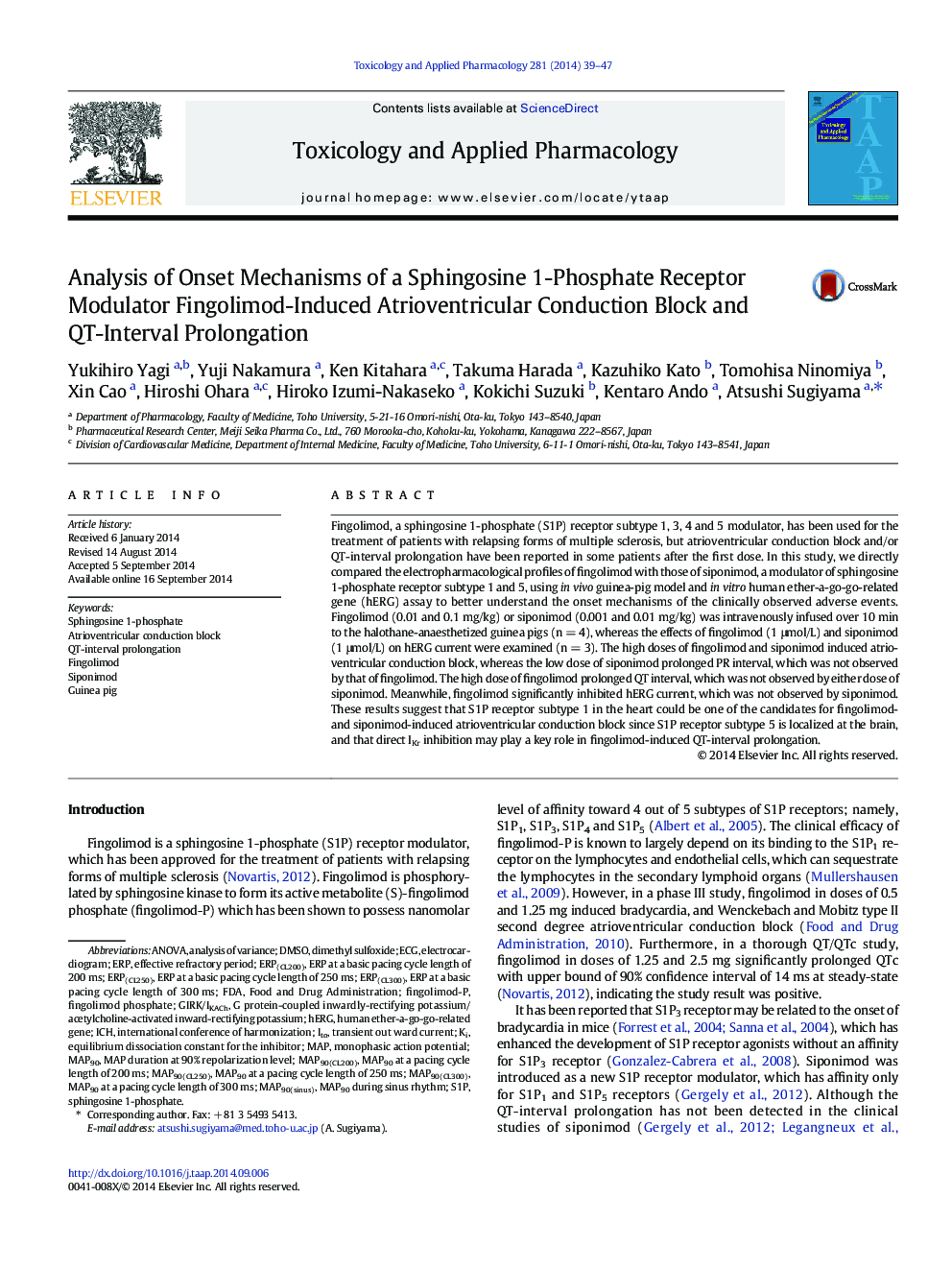| کد مقاله | کد نشریه | سال انتشار | مقاله انگلیسی | نسخه تمام متن |
|---|---|---|---|---|
| 2568470 | 1128458 | 2014 | 9 صفحه PDF | دانلود رایگان |

• Fingolimod and siponimod are S1P1,3,4,5 and S1P1,5 receptor modulators, respectively.
• Fingolimod and siponimod induced AV block in the halothane-anesthetized guinea pigs.
• S1P1 in the hearts may be the target of fingolimod- and siponimod-induced AV block.
• Fingolimod directly inhibited hERG current, which was not observed by siponimod.
• IKr inhibition may play a key role in the fingolimod-induced QT prolongation.
Fingolimod, a sphingosine 1-phosphate (S1P) receptor subtype 1, 3, 4 and 5 modulator, has been used for the treatment of patients with relapsing forms of multiple sclerosis, but atrioventricular conduction block and/or QT-interval prolongation have been reported in some patients after the first dose. In this study, we directly compared the electropharmacological profiles of fingolimod with those of siponimod, a modulator of sphingosine 1-phosphate receptor subtype 1 and 5, using in vivo guinea-pig model and in vitro human ether-a-go-go-related gene (hERG) assay to better understand the onset mechanisms of the clinically observed adverse events. Fingolimod (0.01 and 0.1 mg/kg) or siponimod (0.001 and 0.01 mg/kg) was intravenously infused over 10 min to the halothane-anaesthetized guinea pigs (n = 4), whereas the effects of fingolimod (1 μmol/L) and siponimod (1 μmol/L) on hERG current were examined (n = 3). The high doses of fingolimod and siponimod induced atrioventricular conduction block, whereas the low dose of siponimod prolonged PR interval, which was not observed by that of fingolimod. The high dose of fingolimod prolonged QT interval, which was not observed by either dose of siponimod. Meanwhile, fingolimod significantly inhibited hERG current, which was not observed by siponimod. These results suggest that S1P receptor subtype 1 in the heart could be one of the candidates for fingolimod- and siponimod-induced atrioventricular conduction block since S1P receptor subtype 5 is localized at the brain, and that direct IKr inhibition may play a key role in fingolimod-induced QT-interval prolongation.
Journal: Toxicology and Applied Pharmacology - Volume 281, Issue 1, 15 November 2014, Pages 39–47